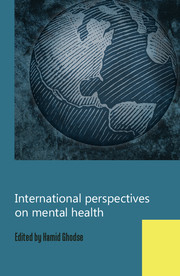Book contents
- Frontmatter
- Contents
- List of contributors
- Preface
- Africa
- Asia
- Afghanistan
- Armenia
- Azerbaijan
- Bahrain
- Bangladesh
- Brunei Darussalam
- Cambodia
- Hong Kong
- India
- Iran
- Iraq
- Israel
- Japan
- Jordan
- Kuwait
- Laos
- Lebanon
- Malaysia
- Mongolia
- Nepal
- Sultanate of Oman
- Pakistan
- The Philippines
- Qatar
- Singapore
- South Korea
- Sri Lanka
- Syrian Arab Republic
- Tajikistan
- Thailand
- Timor-Leste
- Turkey
- United Arab Emirates
- Yemen
- Australasia
- Europe
- North America
- South America
- Index
United Arab Emirates
from Asia
Published online by Cambridge University Press: 02 January 2018
- Frontmatter
- Contents
- List of contributors
- Preface
- Africa
- Asia
- Afghanistan
- Armenia
- Azerbaijan
- Bahrain
- Bangladesh
- Brunei Darussalam
- Cambodia
- Hong Kong
- India
- Iran
- Iraq
- Israel
- Japan
- Jordan
- Kuwait
- Laos
- Lebanon
- Malaysia
- Mongolia
- Nepal
- Sultanate of Oman
- Pakistan
- The Philippines
- Qatar
- Singapore
- South Korea
- Sri Lanka
- Syrian Arab Republic
- Tajikistan
- Thailand
- Timor-Leste
- Turkey
- United Arab Emirates
- Yemen
- Australasia
- Europe
- North America
- South America
- Index
Summary
This paper will focus on the current state of mental health services in the United Arab Emirates (UAE) and reflect on the various public health, socioeconomic and psychosocial factors that have a major impact on the mental health needs of the population. It is to be borne in mind that the services described in this paper are in a state of rapid change, as the country is witnessing one of the fastest rates of development in the world.
Society and culture
Situated in the Arabian Gulf, the UAE has an approximate area of 84 000 km2 and a population of 4.1 million (UAE Census, 2005). Males constitute 67.6% of the population and females 32.4%; 20% are under the age of 15 years and only 1.8% are aged over 60 years (UAE Census, 2005). The literacy rate is 75.6% for men and 80.7% for women. Only 21.9% of the residents of the country are Emiratis (UAE citizens), while the remainder comprise expatriates from nearly 120 countries who have come to work in this oil-rich country. The largest ethnic group among the resident population is Asian, with the majority from the Indian subcontinent. The official language is Arabic and the official religion is Islam.
The UAE federation, formed in 1972, consists of seven emirates (Abu Dhabi, Dubai, Sharjah, Ajman, Um Al Qaiwan, Fujairah and Ras Al Khaima). The UAE is a high-income country, itself rich in oil reserves and also lying in a strategic location along the transit route of the world's crude oil. The proportion of gross domestic product (GDP) spent on health is 3.5%. Life expectancy at birth is 71.3 years for males and 75.1 years for females (World Health Organization, 2004).
Sociocultural and traditional influences
In the UAE, tradition and religion are paramount. Mental health, reflected in good behaviour and conduct, is expected, as outlined by the Muslim religion. This also leads to the notion that supernatural forces can cause mental health problems. Consequently, self-blame and guilt resulting from the belief that mental health symptoms are a punishment for sins are not uncommon among people with mental disorders.
- Type
- Chapter
- Information
- International Perspectives on Mental Health , pp. 231 - 235Publisher: Royal College of PsychiatristsPrint publication year: 2011

